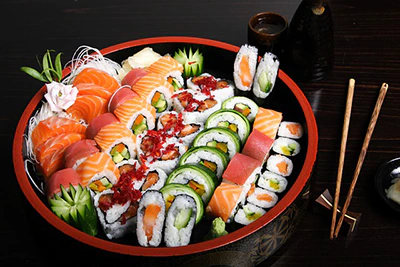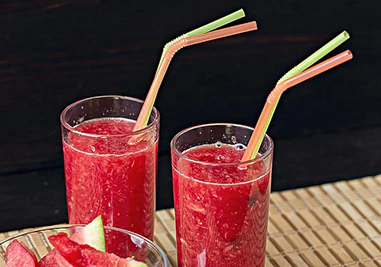| Additive Summary | Lycopene (E160d) |
|---|---|
| Essence | Lycopene or E160d is an extremely beneficial Carotenoid naturally found in all kinds of yellow and red fruits and vegetables, and in food, it is typically used as a natural color. |
| Names | Psi-Carotene, ψ-Carotene, Natural Yellow 27, CAS 502-65-8, E160d, Lycopene, and others. |
| Sourcing | Commercially, it is typically sourced from tomatoes (Lycopersicon esculentum L.) which is a nightshade family (Solanaceae) flowering plant. |
| Manufacturing | The dye can be created by applying supercritical fluid extraction to the sourcing ingredient. To this, then, molecule distillation concentration techniques are applied. It can also be done by the way of solvent extraction which is followed by subsequent removal of the solvent. Solvents like acetone, ethanol, methanol, dichloromethane, hexane, propan-2-ol, and carbon dioxide can be used. Additionally, the additive can also be made synthetically. |
| Application | Coloring (yellow to red to dark red, water-insoluble, fat-soluble). |
| Acceptable Daily Intake | It is recommended to consume no more than 0.5 milligrams of Lycopene for every kilogram of body weight a day. |
| Side Effects | None. Going crazy on the Psi-Carotene can cause Lycopenemia. It’s a condition that is best described by an orange or red discoloration of the skin. That said, it is absolutely harmless and goes away on itself once there’s a relief of the Carotenoid in the diet. |
| Benefits | It has the capacity to offer a ton of different benefits. It can bring gains to eye health, sexual health, heart health, brain health, bone health, skin health, and DNA protection, as well as it offers extremely powerful anti-cancer, anti-inflammation, and antioxidant properties. |
| Studies | 5,910+ studies on Pubmed. 170+ studies on safety. |
| Allergens | None. |
| Diet Restrictions | None. |
| Health Knight Assessment |
Only Beneficial. | Category 0 Additive. |
| Products | It gets used in supplements both as the active and the inactive ingredient. The former includes supplements like the Optimum Nutrition Opti-Men, Solgar Male Multiple, and Jarrow Formulas CarotenALL. Whereas the latter has the Reverse Life Collagen and Thorne Research Q-Best 100 as the examples to show for. It can be found in processed foods like vegetarian and vegan meat products, desserts, cakes, soups, soft drinks, health drinks, and all kinds of other beverages, mascarpone, snack bars, breakfast cereals, smoked ham, marzipan, sauces, salads, dips, spreads, sushi, chewing gum, seafood snacks, pastries, dressings, bread, ketchup, and others. |



